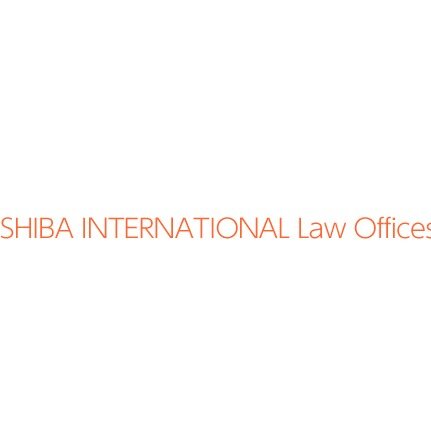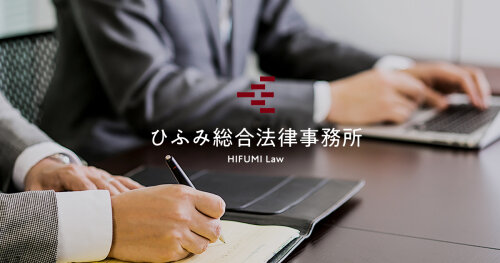Best Trademark Lawyers in Tokyo
Share your needs with us, get contacted by law firms.
Free. Takes 2 min.
List of the best lawyers in Tokyo, Japan
About Trademark Law in Tokyo, Japan
Trademark law in Tokyo, Japan is governed by both national regulations and international treaties. Japan adheres to the Trademark Act, which outlines the rules surrounding the registration, protection, and enforcement of trademarks. Trademarks in Japan function as a means of protecting brand identity and distinguishing products or services from competitors. In Tokyo, as a bustling economic hub, trademarks play a vital role in fostering business growth and consumer trust. The registration process and legal protections for trademarks in Tokyo are designed to align with international standards, providing comprehensive protection for brand owners.
Why You May Need a Lawyer
There are several scenarios where you might need legal assistance with trademarks in Tokyo. You might need a lawyer if you are launching a new brand and want to ensure your trademark is properly registered or if you suspect that your trademark is being infringed upon by another party. Legal advice can also be invaluable if you're facing opposition to your trademark registration or dealing with a complicated dispute over trademark ownership. Lawyers specialized in trademark law can assist in navigating the intricacies of local and international regulations, ensuring your intellectual property is adequately protected.
Local Laws Overview
The key aspects of local laws relevant to trademarks in Tokyo revolve around the Trademark Act of Japan, which regulates the registration, renewal, and enforcement of trademarks. It's essential to understand that a trademark must be distinctive and not similar to existing trademarks to be registerable. Japan operates on a first-to-file basis, meaning that the right to a trademark is generally granted to the first person to apply for registration. The Japan Patent Office (JPO) oversees trademark applications, and various processes are in place for objection and cancellation. Legal stipulations also cover the non-use of trademarks, where a trademark may be subject to cancellation if not used within a specified time frame.
Frequently Asked Questions
What constitutes a trademark in Japan?
A trademark in Japan can be a sign, symbol, logo, name, or any combination used to distinguish goods or services offered by a company or an individual. It must be distinctive and not similar to others that have already been registered.
How long does trademark protection last in Japan?
Trademark protection in Japan typically lasts for ten years from the date of registration and can be renewed indefinitely for further ten-year periods with timely renewals.
How do I file a trademark application in Japan?
Applications are filed with the Japan Patent Office (JPO). It's advisable to conduct a preliminary search to ensure the trademark isn't already registered. The application process involves documentation detailing the trademark, the goods/services to be covered, and necessary fees.
What happens if someone is infringing on my trademark?
You have the right to take legal action against any entity using your trademark without permission. Options include seeking an injunction, monetary damages, and the removal of infringing goods from the market.
Can foreign trademarks be registered in Japan?
Yes, foreign applicants can register trademarks in Japan. They often do so by first registering the trademark in their home country, then proceeding with an application in Japan, sometimes using international mechanisms like the Madrid Protocol.
What can I do if my trademark application is opposed?
Should your application be opposed, you can defend the trademark by responding to objections and providing supporting documents or arguments to the JPO. Legal assistance is highly recommended to navigate this process effectively.
What is the "first-to-file" principle?
Japan's trademark system operates on a "first-to-file" basis, meaning the first person to file for a trademark will generally have priority over later applicants, even those who have used the trademark first without filing.
Is it necessary to use a registered trademark?
Yes, consistent use is essential. If a registered trademark is not used for three consecutive years, it may be subject to cancellation due to non-use.
How long does it take to register a trademark in Japan?
The entire process, from application to registration, typically takes about 12 to 18 months, assuming there are no objections or complications.
Can I license my trademark to others in Japan?
Yes, you can license your trademark to third parties, allowing them to use it under agreed terms. Licensing agreements should be recorded with the Japan Patent Office for legal protection.
Additional Resources
For further assistance and information, the following resources could be invaluable:
- Japan Patent Office (JPO) - Oversees trademark applications and related procedures.
- Japan Trademark Association - Offers support and information regarding trademark protection.
- Tokyo Bar Association - Can provide referrals and access to lawyers specializing in trademark law.
- International Trademark Association (INTA) - Offers educational resources and advice on trademark laws globally, including Japan.
Next Steps
If you need legal assistance with trademarks in Tokyo, the next steps generally involve: assessing your individual situation; consulting with a specialized trademark attorney to discuss your options and strategies; gathering all necessary documentation related to your trademark; and proceeding with any required legal actions or filings as guided by your legal counsel.
Lawzana helps you find the best lawyers and law firms in Tokyo through a curated and pre-screened list of qualified legal professionals. Our platform offers rankings and detailed profiles of attorneys and law firms, allowing you to compare based on practice areas, including Trademark, experience, and client feedback.
Each profile includes a description of the firm's areas of practice, client reviews, team members and partners, year of establishment, spoken languages, office locations, contact information, social media presence, and any published articles or resources. Most firms on our platform speak English and are experienced in both local and international legal matters.
Get a quote from top-rated law firms in Tokyo, Japan — quickly, securely, and without unnecessary hassle.
Disclaimer:
The information provided on this page is for general informational purposes only and does not constitute legal advice. While we strive to ensure the accuracy and relevance of the content, legal information may change over time, and interpretations of the law can vary. You should always consult with a qualified legal professional for advice specific to your situation.
We disclaim all liability for actions taken or not taken based on the content of this page. If you believe any information is incorrect or outdated, please contact us, and we will review and update it where appropriate.
















